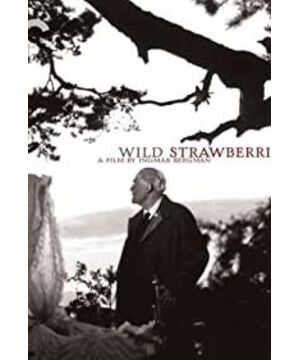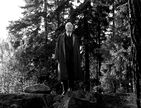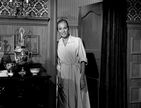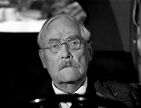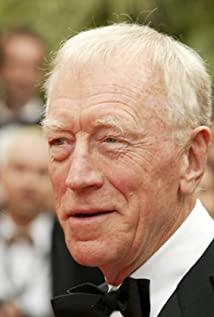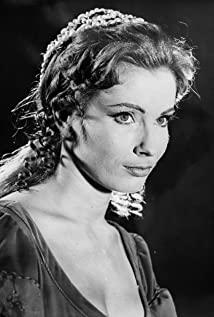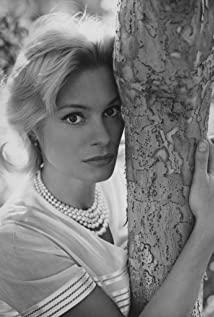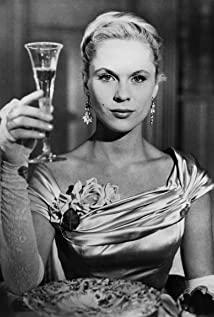Indifferent and bossy father
In fact, the film itself does not tell how cold and bossy Isaac's father was when he was a child. As an insinuation of director Bergman's life, I will analyze him as Bergman for the time being. Bergman's father was a pastor, and his attitude toward his children was extremely cold, harsh, and domineering. The mother is also stubborn and withdrawn. His father's discipline to Bergman was cruel, which brought a strong sense of repression to Bergman as a child, and also created his unique film style in the future. From the perspective of psychoanalysis, such a father will inevitably cause the child to fail to empathize with the father (or male), unable to successfully complete the identification of the father's image, serious lack of security, and lead to the child's adulthood. Self-isolation, unable to have harmonious emotional communication with others, especially unable to cooperate with men tacitly. Isaac in the movie is such a person, and the movie reflects his cold, emotionless character from different character perspectives (daughter-in-law, mother, servant). He can't live in harmony with almost anyone, can't open up his inner world frankly, and can't let others into his inner world, that is to say, he can't empathize with others.
Let's go back to Kafka - the Austrian novelist who also had a domineering, brutish, indifferent father - as the owner of a women's store. The two fathers are also slightly different when it comes to disciplining their children. Bergman's father is a pastor. He lives in strict compliance with old-fashioned dogmas and rules, and tends to have strict requirements and a cold attitude in his children's discipline. On the other hand, Kafka's father was more rude. In addition to being indifferent and bossy, he also treated Kafka with ridicule and self-esteem humiliation, which almost led to Kafka's fragmented personality structure.
These two unusually "tall" fathers are undoubtedly a disaster for the fragile child, which will destroy the child's personality structure and hinder the child's empathy for others. In order to make up for the lack of security and warmth in childhood, they closed themselves in their own castles and carefully established erratic connections with others. Childhood experiences are the root cause of the tragedy of Isaac and Kafka.
The stages
of life Kierkegaard divides the development of life into three stages: the aesthetic stage, the ethical stage, and the religious stage. Both Isaac and Kafka were trapped in the ethical stage, but neither could normally lead a universal life of love and affection. They are squeezed into a dark corner of the ethical world. In this corner, they peep into the lives of normal people with the smell of human fireworks, but they are all unable to walk into the sun due to childhood trauma.
The title of the movie is "Wild Strawberry," and the protagonist Isaac never eats it. Kafka is even more a person who "has never really lived." He longed to build a warm and harmonious family with women, and longed for the love of the opposite sex. Some people even thought that he was suffering from "teenage hunger". He spent his life with three women Established a marriage contract, and broke the contract three times, and finally failed to enter the marriage.
What is holding them back from their pursuit of happiness? I think it's down to the personality flaws and psychopaths they caused early in life. A person's outer life is a projection of his inner personality structure. If his personality structure has obvious defects, then this defect will be reflected in his external work, love, and marriage sooner or later, causing a bottleneck in life development. For Isaac and Kafka, this bottleneck is more reflected in the inability to establish intimate relationships with others, the development of life is stuck in the stage of love and marriage, and it is impossible to further integrate into universal life. There is a saying that "the marital quality of children is the ultimate criterion for testing family education." It also illustrates this truth.
In addition, Isaac and Kafka could not settle for the next best thing to pursue an aesthetic life. They did not have the passion to put their life energy into art or the bohemian aesthetic world, and spend their lives like Van Gogh and Don Juan. It is also impossible to resolutely enter the religious life and completely abandon the life on this side. What they both have in common is that they are extremely attached to the mundane life, and their personality and psychological defects will only make them suffer in the mundane life.
The death of love
The movie is also a love tragedy. This reminds me of a sentence: "If there is no love, life is just a low-quality fight and contest." The
old-fashioned Isaac loved his cousin Sarah all his life. But the younger brother took the lead and stole Sarah. The years seemed to be half a century, and then Isaac married another girl. Freud said this: If a man cannot pursue what he loves most, then everything else becomes an obstacle to him. The things that Ephesians are referring to the most are often related to the sexual instinct. Isaac seemed to fit the description of the sentence, and what could be more exciting to a young lad than to love a girl. However, this experience has become the only sound of love in his life. The heavy blow is tantamount to pouring cold water on his red-hot heart, extinguishing not only the fire of love, but also the passion and joy of life, turning his whole person into a pile of "cold". ashes. There's a sense of frustration inside him when he's faced with anything else.
After marriage, he did not love his wife. Not only did she not love him, but she also had an affair with other men in the wild. In fact, he himself knew that after experiencing Sarah's "fall in love", he would never love any other woman or anyone. He diverted the rest of his life energy to a career: medical research. Although he achieved industry recognition in his old age, he was not happy or satisfied, and there was still lingering loss, depression, and pain in his heart. Of course, this torture is not only due to the failure of love, but the fact is that without love, his life is reduced to a tool to undertake the responsibilities assigned to him by the rules of reality: visiting his mother, raising children, maintaining daily routines , medical research, arguing with servants..., only the warmth of love is lacking. However, having said that, even if he were to start his life all over again and marry Sarah, I am afraid that his marriage would also have all kinds of problems. How could a man with a messed up inner personality structure manage his marriage harmoniously? in order!
As for Kafka, not to mention, with his fragmented personality, he is almost losing ground in the "struggle" with women. The failure of "Empathetic Heroic Poems" made him unable to talk about any conquest of women. Yes, he longed for women, but the sin and fear in his heart made him dare not and unable to face love and enter marriage.
The sex world of Isaac and Kafka is like a barren field, full of scorching dust, whitish sunlight, and choking smells, without the moisturizing of streams, the care of green shades, and the blowing of cool breezes.
That sweet wild strawberry
Everyone has a wild strawberry in their heart. Those who have eaten it will taste the sourness in the sweetness, and those who have not eaten it will yearn for its sweetness. For people like Isaac and Kafka, the biggest dream in life is the "wild strawberry" that cannot be picked. So what exactly does the wild strawberry symbolize in the movie? The symbol is very wide, it can be love, parental love, friendship, the joy of life, or the whole human world full of warmth. The movie seems to be more inclined towards love, telling us to be brave in pursuing love.
Every stage of our life has its tasks and joys, and life is the source of joy. For us, the best thing to do is to enjoy your age and go after that sweet wild strawberry to avoid the greatest punishment in life - loneliness.
Here, I attach Dickinson's famous poem "Over the Fence". I feel that this poem is similar to what the film tells us. There's a strawberry over the
fence I know, I can climb over the strawberry if I want, it's so sweet! But God must scold me for a dirty apron , dear, I guess if he were a kid he would crawl over it too, if he could crawl over it!
View more about Wild Strawberries reviews


